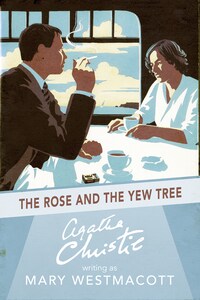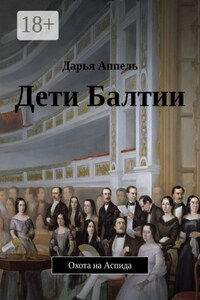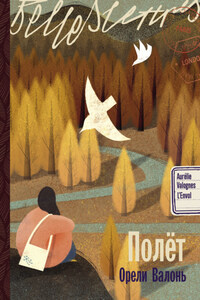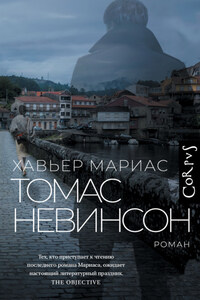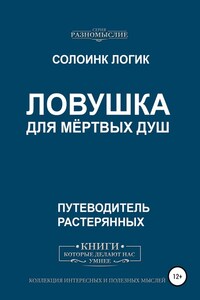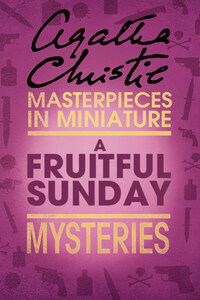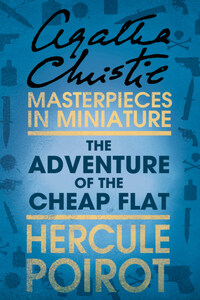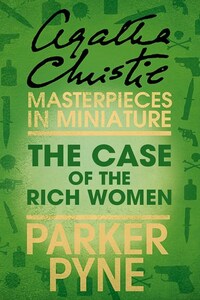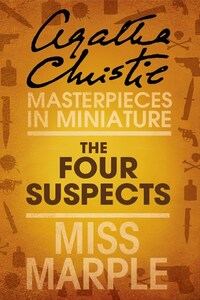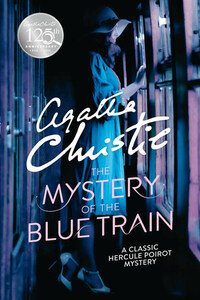HarperCollinsPublishers Ltd
1 London Bridge Street
London SE1 9GF
www.harpercollins.co.uk
First published in Great Britain by Heinemann 1947
Copyright © 1947 Rosalind Hicks Charitable Trust. All rights reserved.
www.agathachristie.com
Cover by ninataradesign.com © HarperCollins 2017
Agatha Christie asserts the moral right to be identified as the author of this work.
A catalogue copy of this book is available from the British Library.
This novel is entirely a work of fiction. The names, characters and incidents portrayed in it are the work of the author’s imagination. Any resemblance to actual persons, living or dead, events or localities is entirely coincidental.
All rights reserved under International and Pan-American Copyright Conventions. By payment of the required fees, you have been granted the non-exclusive, non-transferable right to access and read the text of this e-book on screen. No part of this text may be reproduced, transmitted, down-loaded, decompiled, reverse engineered, or stored in or introduced into any information storage and retrieval system, in any form or by any means, whether electronic or mechanical, now known or hereinafter invented, without the express written permission of HarperCollins.
Source ISBN: 9780008131463
Ebook Edition © June 2017 ISBN: 9780007534951
Version: 2018-04-11
I was in Paris when Parfitt, my man, came to me and said that a lady had called to see me. She said, he added, that it was very important.
I had formed by then the habit of never seeing people without an appointment. People who call to see you about urgent business are nearly invariably people who wish for financial assistance. The people who are in real need of financial assistance, on the other hand, hardly ever come and ask for it.
I asked Parfitt what my visitor’s name was, and he proffered a card. The card said: Catherine Yougoubian—a name I had never heard of and which, frankly, I did not much fancy. I revised my idea that she needed financial assistance and deduced instead that she had something to sell—probably one of those spurious antiques which command a better price when they are brought by hand and forced on the unwilling buyer with the aid of voluble patter.
I said I was sorry that I could not see Madame Yougoubian, but she could write and state her business.
Parfitt inclined his head and withdrew. He is very reliable—an invalid such as I am needs a reliable attendant—and I had not the slightest doubt that the matter was now disposed of. Much to my astonishment, however, Parfitt reappeared. The lady, he said, was very insistent. It was a matter of life and death and concerned an old friend of mine.
Whereupon my curiosity was suddenly aroused. Not by the message—that was a fairly obvious gambit; life and death and the old friend are the usual counters in the game. No, what stimulated my curiosity was the behaviour of Parfitt. It was not like Parfitt to come back with a message of that kind.
I jumped, quite wrongly, to the conclusion that Catherine Yougoubian was incredibly beautiful, or at any rate unusually attractive. Nothing else, I thought, would explain Parfitt’s behaviour.
And since a man is always a man, even if he be fifty and a cripple, I fell into the snare. I wanted to see this radiant creature who could overcome the defences of the impeccable Parfitt.
So I told him to bring the lady up—and when Catherine Yougoubian entered the room, revulsion of feeling nearly took my breath away!
True, I understand Parfitt’s behaviour well enough now. His judgment of human nature is quite unerring. He recognized in Catherine that persistence of temperament against which, in the end, all defences fall. Wisely, he capitulated straight away and saved himself a long and wearying battle. For Catherine Yougoubian has the persistence of a sledgehammer and the monotony of an oxyacetylene blowpipe: combined with the wearing effect of water dropping on a stone! Time is infinite for her if she wishes to achieve her object. She would have sat determinedly in my entrance hall all day. She is one of those women who have room in their heads for one idea only—which gives them an enormous advantage over less single-minded individuals.
As I say, the shock I got when she entered the room was tremendous. I was all keyed up to behold beauty. Instead, the woman who entered was monumentally, almost awe-inspiringly, plain. Not ugly, mark you; ugliness has its own rhythm, its own mode of attack, but Catherine had a large flat face like a pancake—a kind of desert of a face. Her mouth was wide and had a slight—a very slight—moustache on its upper lip. Her eyes were small and dark and made one think of inferior currants in an inferior bun. Her hair was abundant, ill-confined, and pre-eminently greasy. Her figure was so nondescript that it was practically not a figure at all. Her clothes covered her adequately and fitted her nowhere. She appeared neither destitute nor opulent. She had a determined jaw and, as I heard when she opened her mouth, a harsh and unlovely voice.
